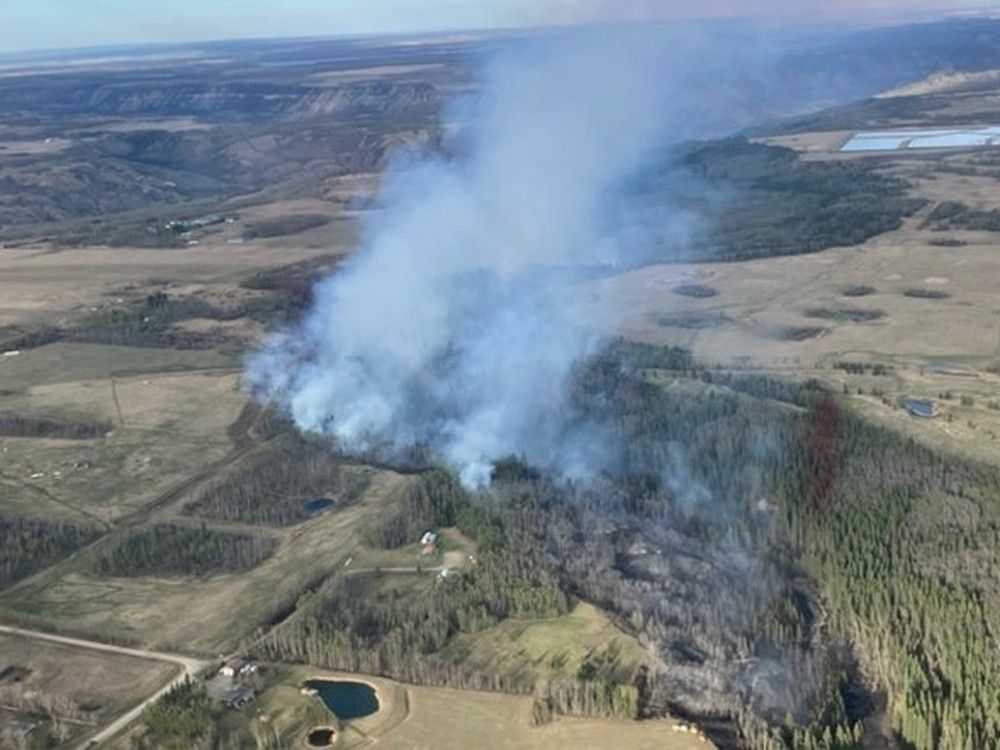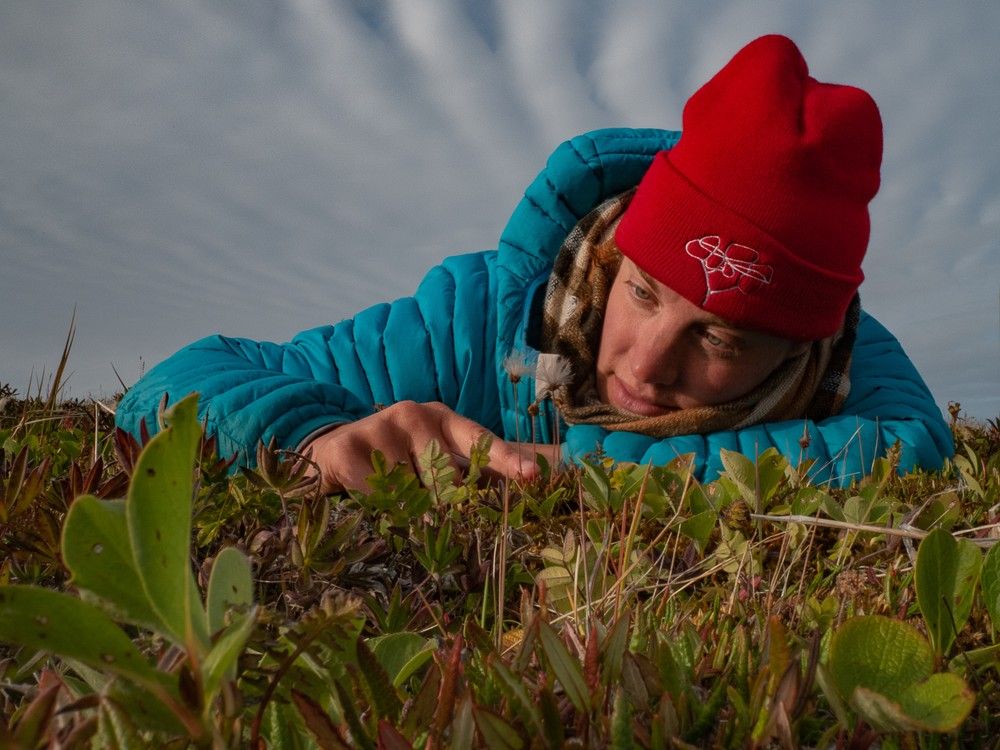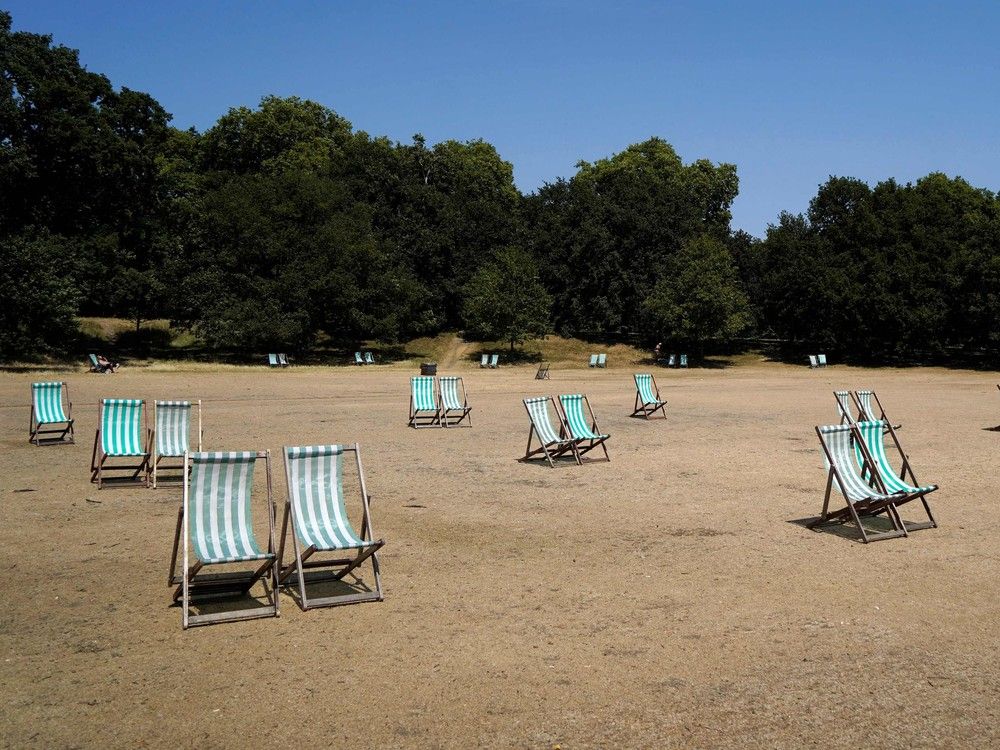
Here’s the latest news concerning climate change and biodiversity loss in B.C. and around the world, from the steps leaders are taking to address the problems, to all the up-to-date science.
Check back every Saturday for more climate and environmental news or sign up for our Climate Connected newsletter HERE.
In climate news this week:
• Brazilian state’s deforestation amnesty poses ‘one of the greatest threats’ to the Amazon
• Arctic plants adapting to climate change faster than scientists thought: study
• UK water firms warned to protect supply amid drought worries
• Potential for a busy fire season in southern Alberta, says wildfire expert
Human activities like burning fossil fuels and farming livestock are the main drivers of climate change, according to the UN’s intergovernmental panel on climate change. This causes heat-trapping greenhouse gas levels in Earth’s atmosphere, increasing the planet’s surface temperature.
The panel, which is made up of scientists from around the world, has warned for decades that wildfires and severe weather, such as B.C.’s deadly heat dome and catastrophic flooding in 2021, would become more frequent and intense because of the climate emergency. It has issued a code red for humanity and warns the window to limit warming to 1.5 C above pre-industrial times is closing.
According to NASA climate scientists, human activities have raised the atmosphere’s carbon dioxide content by 50 per cent in less than 200 years, and “there is unequivocal evidence that Earth is warming at an unprecedented rate.”
And it continues to rise. As of May 5, carbon dioxide in the atmosphere has risen to 429.64 parts per million, up from 428.15 parts per million last month and 427.09 ppm in March, according to NOAA data measured at the Mauna Loa Observatory, a global atmosphere monitoring lab in Hawaii. The NOAA notes there has been a steady rise in CO2, from more than 421 ppm one year ago and less than 320 ppm in 1960.

Climate change quick facts:
• The Earth is now about 1.3 C warmer than it was in the 1800s.
• 2024 was hottest year on record globally, beating the record in 2023.
• The global average temperature in 2023 reached 1.48 C higher than the pre-industrial average, according to the EU’s Copernicus Climate Change Service. In 2024, it breached the 1.5 C threshold at 1.55 C.
• The past 10 years (2015-2024) are the 10 warmest on record.
• Human activities have raised atmospheric concentrations of CO2 by nearly 49 per cent above pre-industrial levels starting in 1850.
• The world is not on track to meet the Paris Agreement target to keep global temperature from exceeding 1.5 C above pre-industrial levels, the upper limit to avoid the worst fallout from climate change including sea level rise, and more intense drought, heat waves and wildfires.
• On the current path of carbon dioxide emissions, the temperature could increase by as much 3.6 C this century, according to the IPCC.
• In April, 2022 greenhouse gas concentrations reached record new highs and show no sign of slowing.
• Emissions must drop 7.6 per cent per year from 2020 to 2030 to keep temperatures from exceeding 1.5 C and 2.7 per cent per year to stay below 2 C.
• There is global scientific consensus that the climate is warming and that humans are the cause.
(Source: United Nations IPCC , World Meteorological Organization , UNEP , NASA , climatedata.ca )
Latest News

Arctic plants adapting to climate change faster than scientists thought: study
With the Arctic warming faster than the global average, researchers at UBC and the University of Edinburgh have made an important discovery about tundra plants and how they are adapting faster than expected to climate change.
For the joint study, published in the journal Nature, researchers tracked more than 2,000 plant communities over four decades at 45 sites in the Canadian High Arctic, Alaska and Scandinavia, and found that some species thrived while others declined.
They found that some tundra plants like willowy shrubs are able to green up earlier because of longer growing seasons, while other flowering plants are being overshadowed and dying out.
These changes could alter global carbon cycles, according to the long-term monitoring study, which is part of the International Tundra Experiment, a network of researchers examining the impacts of warming on tundra ecosystems.
Scientists say the tundra’s permafrost stores a third of the planet’s carbon. But if the plants on the surface change, that could alter the permafrost, changing how much carbon is being stored.
—Tiffany Crawford
‘Spring dip’ blamed for steep uptick in B.C. wildfires
The number of wildfires in B.C. has roughly doubled over the past several days, but an information officer with the B.C. Wildfire Service says the activity can be attributed to the annual “spring dip.”
Amanda Graves says the phenomenon is caused by a decrease in moisture in the needles of coniferous trees.
She says it comes shortly after the snow has melted, but before vegetation “begins to get really green.” But Graves says it’s too soon to say whether recent fires are an indicator of what’s to come this wildfire season.
The wildfire service posted a seasonal outlook last month, which forecast a warmer than usual spring, coupled with above-average precipitation for coastal and Central B.C., which could help mitigate the persisting drought. It noted May and June are typically the rainiest months.
“The amount and duration of rain events during this period will influence the length and intensity of the core wildfire season,” the outlook said.
—The Canadian Press

UK water firms warned to protect supply amid drought worries
The UK is urging water companies to protect supplies as the driest start to spring in 69 years threatens reservoir levels and river flows.
The environment regulator held a meeting of the National Drought Group on Wednesday saying that with reservoirs at 84 per cent full, there is now a medium risk of summer shortages, according to a statement.
Frequent and long-lasting high-pressure systems have been a persistent feature of the UK’s spring this year, according to the UK Met Office. The weather pattern has blocked moisture-bearing clouds from moving in, leading to record sunshine and a boom in solar energy. It’s another sign of the challenges that a changing climate brings.
Europe has warmed twice as fast as the global average since the 1980s, and climate change is making summers hotter and soils drier. The role of climate change in droughts — which can vary in intensity, location and duration — is less clear, according to the UK Met Office.
Farmers have had to start irrigating crops earlier and reservoir levels are either notably low or exceptionally low across the North East and North West of England. Both these regions have seen their driest start to the year since 1929, according to the Environment Agency.
—Bloomberg News
Brazilian state’s deforestation amnesty poses ‘one of the greatest threats’ to the Amazon
With little fanfare and virtually no publicity, lawmakers in the Brazilian state of Rondonia have passed legislation in favour of hundreds of cattle ranchers who had illegally converted swathes of Amazon rainforest into pasture land.
The new legislation, which was passed April 28 and took effect immediately, also grants amnesty to slaughterhouses that purchased cattle illegally raised inside what had been the Jaci-Parana conservation area, which the new law effectively dissolves.
“All fines, notices of violation and other administrative penalties tied to the occupation and use of the area are automatically voided and carry no legal or financial consequences,” declared the law.
One of the beneficiaries of the amnesty is likely to be JBS SA, the world’s largest meatpacker, which is poised to start selling shares on the New York Stock Exchange in June. According to a 2023 audit by Brazil´s Federal Prosecution Service, 12 per cent of cattle purchased by JBS in Rondonia came from illegally deforested areas.
—The Associated Press
Potential for a busy fire season in southern Alberta, says wildfire expert
Conditions are set up for a potentially active fire season in southern Alberta, says a wildfire expert.
Mike Flannigan, a professor at Thompson Rivers University in Kamloops, said Tuesday it’s already dry in southern Alberta, from about Calgary and the Bow Valley south to the U.S. border.
“The forecast can be wrong, but right now it’s supposed to be a hot, dry summer, especially in the south of Alberta,” he said, adding that a hot, dry summer generally means more fire.
The Bow Valley or Kananaskis Country is overdue for a big fire at some point, he said.
“I’m not saying it’s going to be this year, but I’m saying it’s been primed for some time and one of these days we are going to see a big fire in that corridor,” said Flannigan.
In the spring, southern Alberta tends to get plenty of grassfires, but fire season in the south usually peaks in the summer, said Flannigan. In 2017, the Kenow fire in Waterton began in September and last year’s Jasper fire started in July.
—Calgary Herald
USAID’s demise threatens a vital health and climate solution in Africa
The Trump administration’s gutting of the US Agency for International Development, with 80 per cent of its programs now canceled, is a blow for clean cookstove programs in Africa. That means more Africans will have to rely on burning wood or charcoal in their homes, driving air pollution, deforestation and greenhouse gas emissions across the continent.
Clean cookstoves run on electricity, gas or smaller amounts of biomass, and switching households to less polluting cooking methods reduces harmful impacts. Health and environmental advocates for years have promoted clean cooking as an affordable, win-win solution. But the stoppage of US aid has left many projects in limbo.
“Funding is drying up, and the impact is real,” said Mattias Ohlson, chief executive officer of Emerging Cooking Solutions in Zambia. “These programs can make a difference between a company getting off the ground or not.”
About a third of the global population cooks on open fires or basic stoves, burning charcoal, coal, firewood, agricultural waste or animal dung. The resulting air pollution contributes to 3.7 million premature deaths annually, according to the International Energy Agency (IEA), with women and children most at risk of effects like respiratory complications and heart disease. The practice is also responsible for about 2% of global emissions, says the Stockholm Environment Institute.
—Bloomberg News
A 26-year-old who asked to help shape Japan’s climate goals has a warning
A 26-year-old solar executive who jolted Japan’s government by making a rare public criticism of the nation’s climate policies is urging others to keep pressing legislators to show more ambition.
Shota Ikeda was among 20 outside experts asked to contribute to a process that saw the nation’s cabinet approve plans to cut greenhouse gas emissions by 60 per cent by 2035 from 2013 levels, a goal seen by analysts and campaigners as falling short of required action.
Ikeda had called for emissions reductions of at least 75 per cent to be considered and sharply criticized the consultation as discouraging genuine debate in a nation that remains among the world’s largest polluters.
“It’s important to continue speaking up,” said Ikeda, president of renewable energy firm Hachidori Solar, which provides rooftop solar panels to households. “It’s all over if we stop calling things out — we need to keep talking about how things should be.”
Japan’s annual emissions fell about 4% in the 12 months through March 2024 to a record low, amid a slowdown in manufacturing and weaker energy consumption, according to government data published last month. Even so, that rate of decline is seen by climate analysts as too slow to enable the nation to meet an ambition of hitting net zero by mid-century.
—Bloomberg News